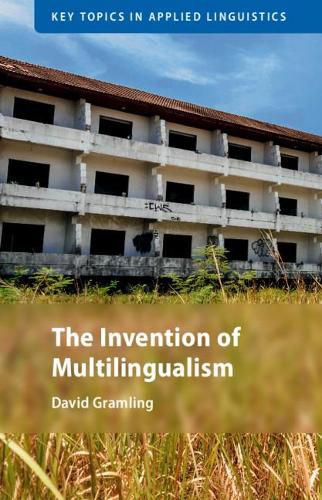Readings Newsletter
Become a Readings Member to make your shopping experience even easier.
Sign in or sign up for free!
You’re not far away from qualifying for FREE standard shipping within Australia
You’ve qualified for FREE standard shipping within Australia
The cart is loading…






Multilingualism is a meaningful and capacious idea about human meaning-making practice, one with a promising, tumultuous, and flawed present - and a future worth caring for in research and public life. In this book, David Gramling presents original new insights into the topical subject of multilingualism, describing its powerful social, economic and political discourses. On one hand, it is under acute pressure to bear the demands of new global supply-chains, profit margins, and supranational unions, and on the other it is under pressure to make way for what some consider to be better descriptors of linguistic practice, such as translanguaging. The book shows how multilingualism is usefully able to encompass complex, divergent, and sometimes opposing experiences and ideas, in a wide array of planetary contexts - fictitious and real, political and social, North and South, colonial and decolonial, individual and collective, oppressive and liberatory, embodied and prosthetic, present and past.
$9.00 standard shipping within Australia
FREE standard shipping within Australia for orders over $100.00
Express & International shipping calculated at checkout
Multilingualism is a meaningful and capacious idea about human meaning-making practice, one with a promising, tumultuous, and flawed present - and a future worth caring for in research and public life. In this book, David Gramling presents original new insights into the topical subject of multilingualism, describing its powerful social, economic and political discourses. On one hand, it is under acute pressure to bear the demands of new global supply-chains, profit margins, and supranational unions, and on the other it is under pressure to make way for what some consider to be better descriptors of linguistic practice, such as translanguaging. The book shows how multilingualism is usefully able to encompass complex, divergent, and sometimes opposing experiences and ideas, in a wide array of planetary contexts - fictitious and real, political and social, North and South, colonial and decolonial, individual and collective, oppressive and liberatory, embodied and prosthetic, present and past.